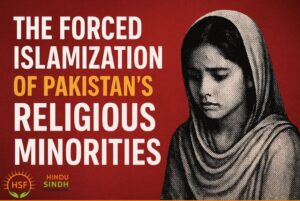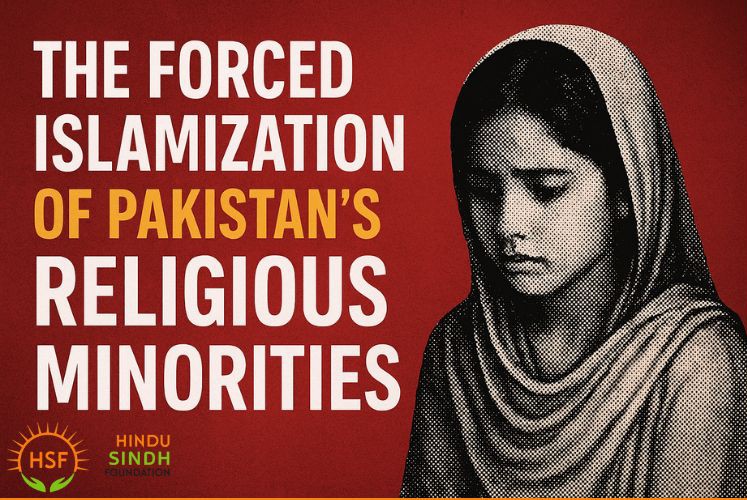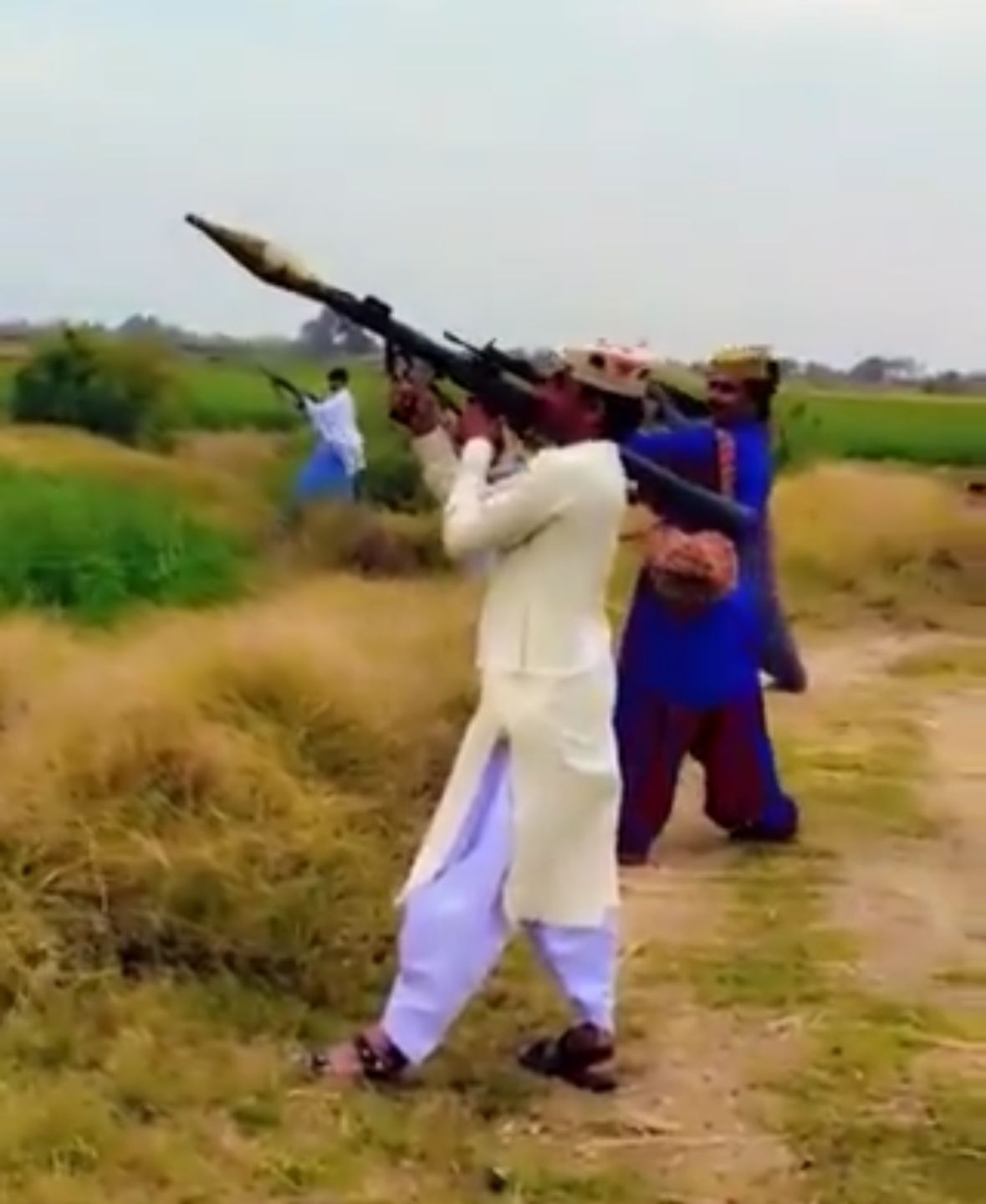Every year, between 1,000 and 2,000 minor girls from Pakistan’s Hindu and Christian communities are abducted, forcibly married to Muslim men, and compelled to convert to Islam.
The Office of the United Nations High Commissioner for Human Rights (OHCHR) expressed alarm in 2024 over the vulnerability of these girls, warning:
“The exposure of young women and girls belonging to religious minority communities to such heinous human rights violations and the impunity of such crimes can no longer be tolerated or justified.”
These gender-based crimes have been condemned by multiple international bodies, including the United Nations and the European Union, both of which criticized Pakistan’s courts for frequently siding with abductors rather than victims.
A Hidden Crisis
Despite growing awareness among scholars and NGOs, gender-specific religious persecution (GSRP) remains underreported in mainstream media.
Michelle Clark, co-author of Hear Her Cries (2023), noted that such crimes are often ignored in the West:
“There is a tendency to refrain from passing judgment on other religions and cultures, which can quickly lead to dismissal of the problem.”
Systemic Discrimination
Pakistan’s record of religious intolerance is well-documented:
-
Ranked 8th on Open Doors’ list of countries with the worst Christian persecution.
-
Around 25% of blasphemy accusations target Christians, who make up only 1.8% of the population.
-
Human rights groups, including Amnesty International and Minority Rights Group, report rising hate speech and discrimination against Hindus.
The abduction and forced conversion of minority girls must be seen within this broader pattern of religious marginalization. While Pakistan’s constitution promises religious freedom, sharia-based legal interpretations often take precedence.
Legal Hurdles and Victim Silencing
Efforts to address the problem have been blocked. In 2016, a bill to curb these crimes was rejected after the Council of Islamic Ideology declared it “un-Islamic.”
Human rights lawyer Tehmina Arora of ADF International explains that religious minorities’ socio-economic disadvantages make justice harder to obtain. Once a girl is converted to Islam—whether voluntarily or not—apostasy laws prevent her from returning to her faith.
Cases like:
-
Maira Shahbaz, 14, a Christian girl who escaped her abductor only to be accused of apostasy, forcing her into hiding.
-
Chanda Maharaj, 15, a Hindu girl returned by court order to her abductor despite proof of her minority status.
Such examples highlight a system that often protects perpetrators over victims. Birth records are falsified, clerics conduct underage marriages, and courts accept coerced “voluntary” conversion statements.
A Perfect Storm for Abuse
The structural problems run deeper. Laws against domestic violence, sexual harassment, and child marriage are rarely enforced despite Pakistan’s treaty obligations.
-
UNFPA reports that 56% of women who suffer violence do not seek help, citing cultural stigma, economic dependency, and lack of legal access.
-
Child marriage remains common; even the 2025 ban in Islamabad drew fierce criticism from the Council of Islamic Ideology for being “un-Islamic.”
-
Sahil, a child protection NGO, warns that child abuse remains endemic.
For minority girls, these challenges are compounded by religion-based discrimination. Their abduction and forced conversion are not only acts of violence against the individual, but a means to humiliate and weaken entire communities.
The Silence Around GSRP
Unlike mob attacks on minority neighborhoods, which sometimes attract national outrage—such as the 2023 Jaranwala incident—GSRP often remains hidden. Families may fear retaliation, lack resources to pursue justice, or be silenced by societal pressures.
As the Open Doors Gender Report (2020) notes, these crimes are “hidden and more complex” than other forms of religious persecution.
Until both Pakistan’s government and the international community address this crisis with urgency, the forced Islamization of minority girls will remain a silent tragedy—one repeated hundreds of times each y
ear.

For more updates and detailed coverage of this case and other issues affecting the Hindu and Sindhi communities in Sindh, Pakistan, stay tuned to Sindh Renaissance.






